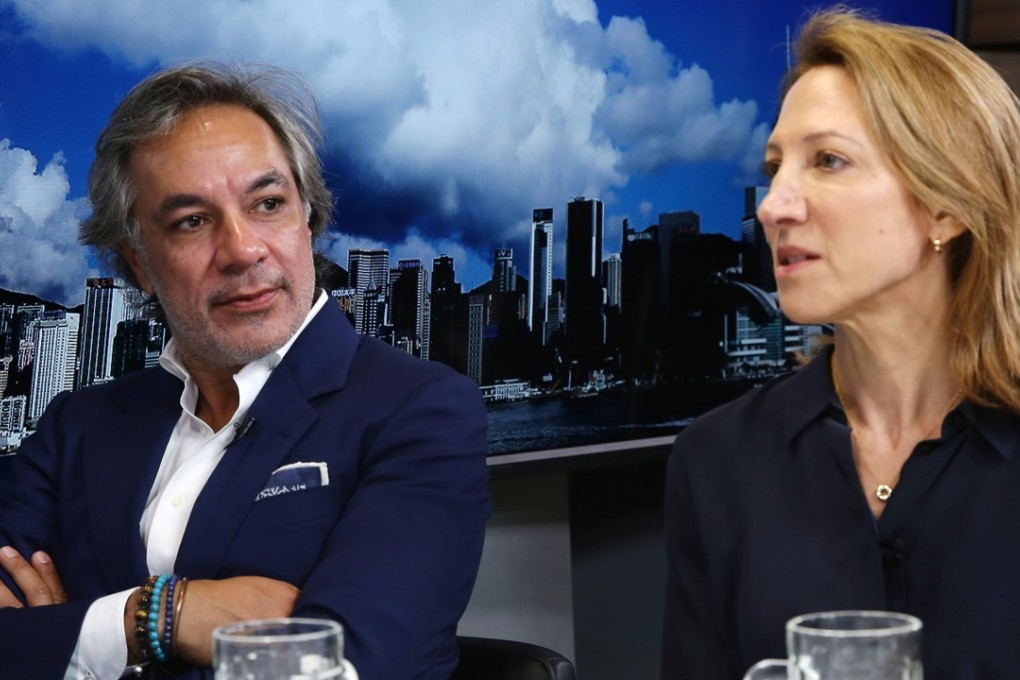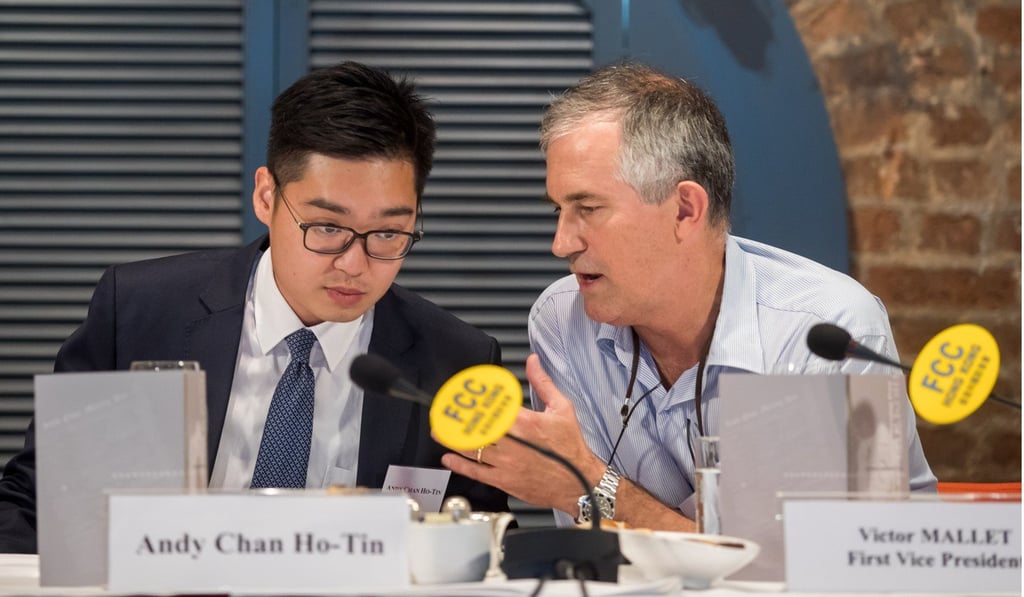Hong Kong business chambers play down concerns over Financial Times journalist Victor Mallet’s visa refusal
American Chamber of Commerce and General Chamber of Commerce say their primary concerns lie in ensuring a level playing field for firms in the city

Two major business chambers on Sunday played down concerns over the Hong Kong government’s decision not to renew a working visa for veteran journalist Victor Mallet after he chaired a Foreign Correspondents’ Club talk by an independence activist.
Tara Joseph of the American Chamber of Commerce said businesses were more concerned with ensuring a level playing field for firms in the city.
She conceded it was one of the chamber’s missions to support the free flow of information in Hong Kong, but would not comment directly on the Mallet case.
“I think it needs to be said that people are watching over Hong Kong,” Joseph said. “It’s important that companies are able to operate freely and express themselves.”
Joseph was previously a journalist with Reuters for 15 years and was twice elected president of the Foreign Correspondents’ Club.
